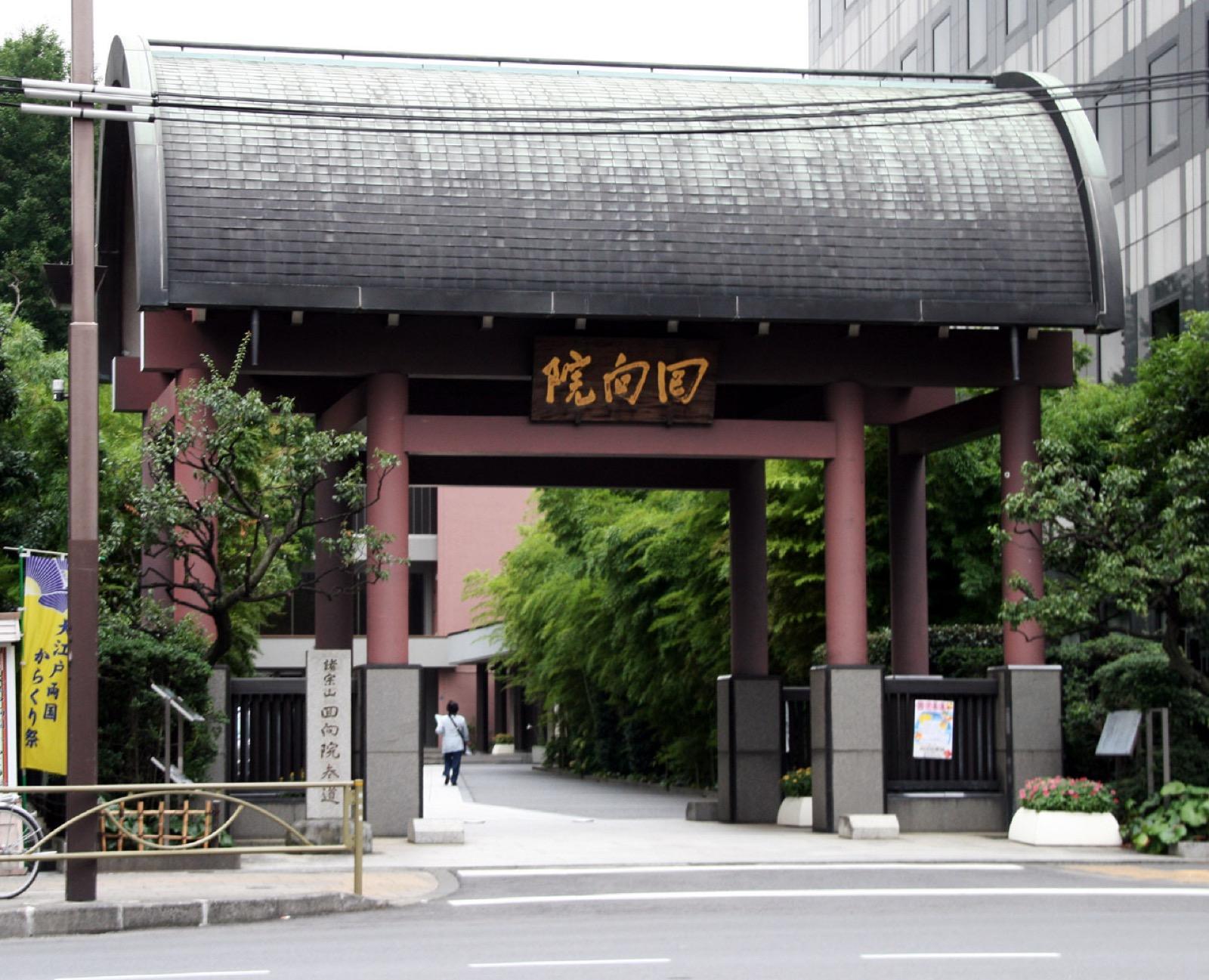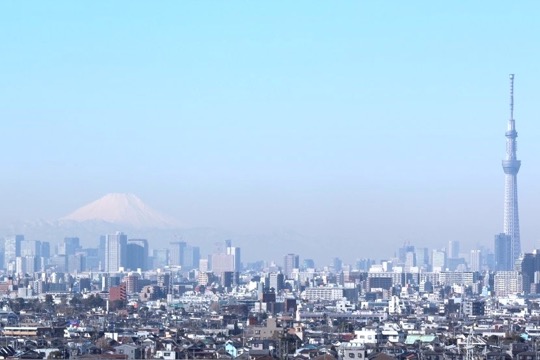On This Page
Ekoin Temple, a notable site in Tokyo, has played a significant role in the city’s history, particularly in the evolution of professional sumo wrestling. Founded in 1657, it serves as a memorial for the countless lives lost during the Great Meireki Fire, and it houses various cultural and spiritual treasures.
Ekoin Temple, officially known as Shozoku-san Muryoji Ekoin, is a Jodo-shu (Pure Land sect) Buddhist temple. It was established in 1657 as a compassionate initiative by the Tokugawa shogunate, led by Tokugawa Ietsuna, to honor the victims of the Furisode Fire. Over time, it has become a sanctuary for souls who perished under extraordinary circumstances, including victims of other disasters and executed prisoners.
The temple has a significant historical connection to sumo wrestling. It was the site of the earliest professional sumo tournaments, beginning with the first event in 1768. These tournaments, known as kanjin sumo, were charity events that contributed to the development of sumo as a professional sport. The tradition continued until 1909 when the tournaments were transferred to the Ryogoku Kokugikan arena.
The temple’s grounds feature the Chikara-zuka, a monument built in January 1936, which honors deceased sumo wrestlers and elders of the Japan Sumo Association. Sumo wrestlers often visit this monument to pray for success in their careers. Additionally, the temple is the final resting place for historical figures such as the Joruri chanter Takemoto Gidayu, Edo period artist Santo Kyoden, and the famed thief Nezumi Kozo Jirokichi.
Ekoin’s memorials extend to all beings, including war dogs, horses, pets, and small birds, reflecting its philosophy of universal respect for life. This is exemplified by the Mizuko-zuka, established in 1793, a memorial service for aborted or miscarried fetuses.
Though nestled among Ryogoku’s buildings, Ekoin Temple provides a place for reflection. It offers visitors insights into Tokyo’s heritage and the opportunity to honor the memory of notable individuals. The nearby Edo-Tokyo Museum enriches the experience with further historical context, particularly on sumo wrestling. While not as frequented by tourists, Ekoin Temple’s deep cultural and spiritual roots make it a significant destination in Tokyo.
Planning Your Japan Trip?
Is a JR Pass Worth It For Your Route?
Honest Answer in 60 Seconds
A JR Pass doesn't always save you money (and for many routes, it's just extra hassle). Our free calculator works out the real numbers for your planned route, so you can decide for yourself.

